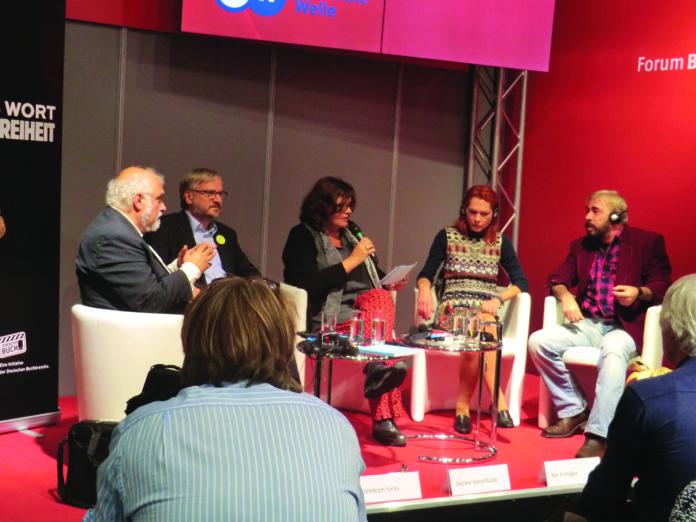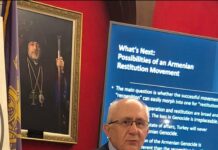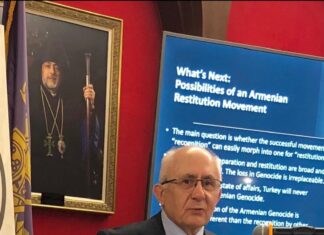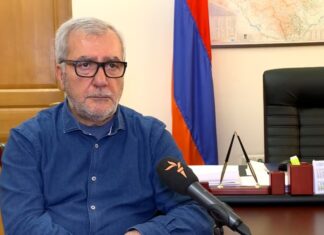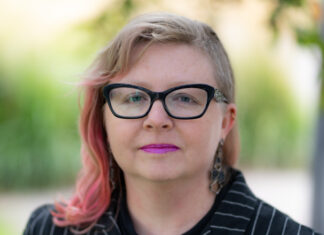FRANKFURT — If France was the Guest of Honor this year at the celebrated Frankfurt Book Fair, then Turkey — that is, the official Turkey — might well earn the title of the Guest of Dishonor. Taking part in the innumerable interviews with authors, round table discussions and special exhibits were leading Turkish personalities from the book world, who presented their recent works and engaged capacity audiences in heated debates about the current, sad state of affairs for intellectuals in their country. These were the voices of the “other” Turkey.
On October 11, the opening day of the world’s largest trade fair for books, which ran to October 15, Turkish investigative journalist Ahmet Sik was given the Raif Badawi Award for Courageous Journalists (granted by the Friedrich Naumann Foundation for Freedom) — of course, in absentia, since he is currently behind bars in Turkey. Later on the same day, author and Spiegel journalist Hasnaim Kazim presented his book, Krisenstaat Türkei. Erdogan und das Ende der Demokratie am Bosporus (“Turkey a State in Crisis: Erdogan and the End of Democracy on the Bosporus”). On Friday, Can Dündar, former editor-in-chief of Cumhuriyet, presented his book, Verräter. Von Istanbul nach Berlin. Aufzeichnungen im deutschen Exil (“Traitor: From Istanbul to Berlin – Notes from German Exile”), in which he poses the question: who is the traitor? At a large gathering convened on Saturday, journalists, authors and political figures conducted readings in solidarity with Deniz Yücel, a German-Turkish writer who has been jailed since February. The following day a round table discussion entitled “Critical Voices from Turkey” organized by the “Initiative Freundeskreis #FreeDeniz” featured writers representing the “other” Turkey. An hour later on a huge stage inside the fair, again leading journalists, both German and Turkish, joined to present “New Journalistic Solutions for a Turkey in Crisis.”
Books Against Censorship
It was literally impossible to attend all the events, so let me focus on one particularly significant meeting that took place on October 13. Entitled “Books against Censorship,” it brought together two publishers, one author and an actor. Sponsors were the German Publishers and Booksellers Association (Börsenverein) [https://www.boersenverein.de/de/394814] together with Deutsche Welle [http://www.dwhttp://www.dw.com/en/top-stories/s-9097], Germany’s public international broadcaster. Christopher Links of the Ch. Links publishing company (Berlin) and Ragip Zarakolu of Belge (Istanbul) joined physicist and author Asli Erdogan in a discussion moderated by Sabine Kieselbach, literary correspondent for Deutsche Welle. Actor and director Mehmet Atak also participated.
The mere presence of Asli Erdogan constituted an assertion of the power of resistance against censorship; she had been in prison since August 2016, was released in December and finally allowed to leave the country last month to receive the Remarque Peace Prize in Oznabrück, only as a result of massive international protests against her unlawful incarceration.
She recounted her story in simple, direct terms. In the 1990s, she had written for the newspaper Radikal, and was fired in 2001. In 2010 she resumed her writing there as a guest columnist. In the climate of post-coup hysteria, on August 17, 2016, police raided the offices of the paper, and then broke into her apartment at night, hauling her off to jail on charges of “terrorist propaganda” (i.e. pro Kurdish, = pro-PKK) and “destruction of national unity,” which can lead to capital punishment. When asked by Kieselbach about her state of health, Erdogan replied that she was “on automatic pilot,” and had not really yet dealt with the trauma, for sure, not yet in writing.



